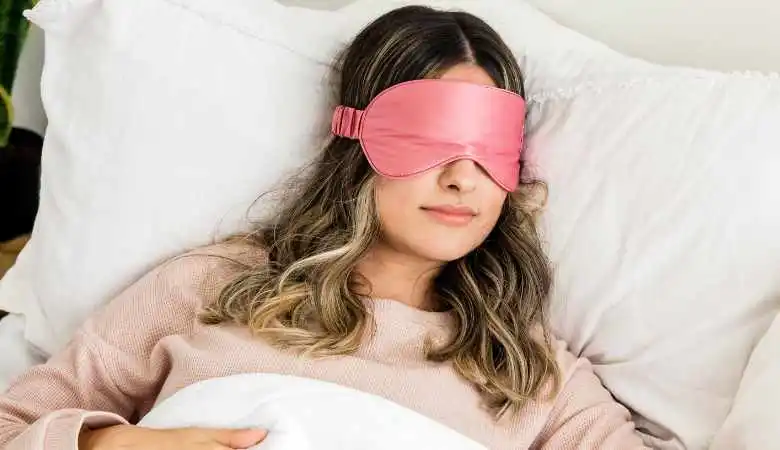Simple Steps to Improve Your Sleep Quality

The benefits of sound sleep are well known: it energizes brain cells, restores skin, increases productivity and mood, and strengthens all major body systems. According to a survey, if someone does not get enough sleep due to insomnia, Whether you struggle with insomnia regularly or are new to insomnia, there are simple steps to improve your sleep quality.
Don’t Overdo It
More and more people are using sleep aids to track and analyze their sleep quality. The global sleep aid market will reach $89.1 billion by 2030. But despite good intentions, focusing on getting enough sleep can be harmful, leading to increased stress and spikes in cortisol levels. We must find a way to distract ourselves from looking at the clock and counting sheep. Practising mindfulness, journaling anxious thoughts before bed, and avoiding trackers, watches, and aids are all options worth trying.
Suitable environment
The bedroom should not be turned into a zone where the boundaries between work and rest are blurred. It should only be used for its intended purpose. But it’s also essential to create the right environment for sleep—and that doesn’t just mean pretty bedding. Noise from traffic, neighbours and even birds can be disturbing. A study conducted among young parents found that half of those surveyed had improved sleep quality when noise and light stimuli were reduced.
To make your sleep as comfortable as possible, it is essential:
- Maintain the temperature in the bedroom at 18–20 degrees;
- Minimize any noise and light (including artificial light from devices);
- Get rid of distracting odours.
An electric diffuser with a few drops of soothing lavender oil will help compensate for the lack of fresh air.
Relaxation with sound
ASMR (autonomous sensory meridian response) can help you fall asleep. This reasonably broad term describes the pleasant sensation of tingling in the back of the head and goosebumps in response to specific visual or auditory stimuli. Such stimuli may include slow, soft speech or repetitive calming and hypnotic sounds, such as the clock ticking. According to a recent study, ASMR audio helped participants immerse themselves in psychological comfort and sleep. It also causes the release of chemicals such as oxytocin and dopamine, which promote relaxation.
Only peace
Living in a constant state of stress is not conducive to good sleep, so minimizing stress is paramount. While more common methods of combating it, such as breathing techniques and gentle stretching before bed, are good options, you can incorporate humming into your evening routine. In addition to stimulating serotonin and a calm state, it activates the vagus nerve. It triggers the parasympathetic nervous system, known as the “rest and digest” phase.
What is needed for this? Please take a deep breath and, as you exhale, hum for as long as it takes to exhale. Close your eyes and continue chanting until you feel your whole body relax. If humming isn’t an option, try curling your toes to relieve stress. To do this, you need to tense your toes on each foot one at a time and then release them – this can help distract you from negative thoughts and relieve tension in the rest of your body.
Workout
Regular exercise helps regulate cortisol levels, which has a positive effect on sleep. Working out also releases endorphins, which stimulate melatonin production and help balance body temperature, making it easier to fall asleep. For beginners, yoga classes before bed are suitable. In addition to helping relieve muscle tension through repetitive stretching and twisting, exercise also promotes calm.
Proper nutrition
Before bed, it’s important to avoid stimulants such as alcohol and coffee and avoid fatty and sugary foods, which can raise your blood sugar and disrupt your sleep patterns. Instead, select protein-rich foods like chicken and turkey, which contain tryptophan. This amino acid increases levels of serotonin, a precursor to melatonin. Complex carbohydrates, such as sweet potatoes, can help improve your chances of getting deep sleep; tryptophan is more accessible to digest in this combination.
A healthy gut is critical to good sleep. According to research, those who eat high-fibre foods have better deep sleep, which is essential for a full recovery. Fibre-rich foods like leafy greens and legumes feed the good bacteria in your gut and keep it healthy. When you eat is also crucial. It would help if you did not have dinner too close to bedtime (optimally two to three hours before bedtime) since anything eaten later can trigger insulin release, leading to brain awakening.
Sunbathing
Getting enough daylight a few hours before bed is essential to get a good night’s sleep. Exposure to daylight (and ideally sunlight) effectively reset the body’s biological clock, allowing it to respond to signals at the right time. First of all, it releases essential hormones: cortisol, which is necessary in the morning to increase alertness and energy levels, and melatonin, which helps to calm down and prepare for sleep in the evening. Exposure to sunlight also produces serotonin, making you feel calm and focused and triggering melatonin production.
Benefits of bathing
Taking a bath is a great way to get your circadian rhythm back on track. The water gently raises your body temperature and promotes sleepiness. It also helps synchronize the body’s natural rhythms, which in turn helps you fall asleep. Add a drop or two of lavender essential oil to your bath to induce sleep or a few handfuls of magnesium bath salts. Magnesium is an essential mineral that promotes sleep and is absorbed through the skin during bathing.






